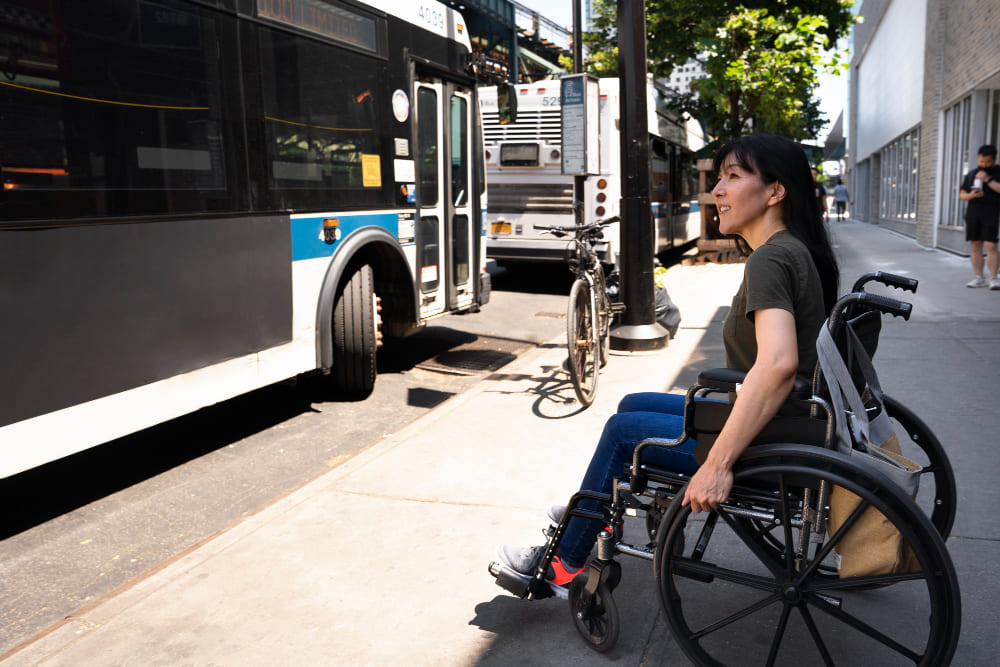Choosing Accessible Destinations – NDIS Accessibility Travel
One of the most common challenges faced by individuals with disabilities is a sense of isolation. Often confined to their homes or limited in their mobility, they may experience a lack of social interaction and a reduced sense of belonging. This isolation can lead to feelings of loneliness, depression, and anxiety. The inability to participate in activities that were once enjoyed due to physical limitations can exacerbate these feelings, causing a negative impact on NDIS mental health.
When planning a trip, it’s crucial to select destinations that are accommodating and accessible. Some places that prioritize accessibility include:
NDIS Travel Destination
United States
Several cities, such as San Francisco, Chicago, and New York City, have made substantial efforts to improve accessibility for travellers with disabilities. National parks like Yosemite and Yellowstone offer accessible trails and accommodations.
Europe
Many European cities, such as London, Barcelona, and Berlin, are known for their accessibility initiatives. These cities offer accessible transportation, wheelchair-friendly attractions, and accommodation options.
Australia
Sydney, Melbourne, and Brisbane are renowned for their accessibility features. The Great Barrier Reef offers accessible diving experiences, and national parks like Blue Mountains provide wheelchair-friendly trails.
Pre-Trip Preparations for NDIS Travelers with Accessibility Issues
Traveling with accessibility needs requires thoughtful preparation and informed decision-making to ensure a smooth, enjoyable, and stress-free experience. This guide is designed to support NDIS participants and individuals with disabilities in organizing a comfortable and enriching journey.
NDIS: Researching Destination Accessibility
Before setting out, it is vital to research the accessibility standards and services available at your chosen destination. Key areas to evaluate include:
Accommodation
-
Seek hotels, resorts, or vacation rentals offering essential accessibility features such as wheelchair ramps, elevators, accessible rooms, and assistive technologies.
Transportation
-
Investigate whether airlines, buses, trains, and taxis provide accessibility options such as designated seating, accessible boarding, trained staff, and accessible vehicles.
Attractions and Activities
-
Confirm that popular sites (museums, parks, tours, and restaurants) provide ramps, elevators, accessible bathrooms, tactile signage, and audio guides.
Local Infrastructure
-
Assess the overall accessibility of streets, pedestrian paths, public transport systems, and community spaces.
Booking Suitable Accommodations
Selecting appropriate lodging can significantly affect comfort and mobility throughout the trip. Key considerations include:
Accessibility Features
-
Prioritize accommodations with features like wide doorways, grab bars, roll-in showers, ramps, and elevators.
Location
-
Choose accommodations in well-connected areas close to accessible transport, attractions, and dining.
Special Requests
-
Communicate specific requirements in advance—such as accessible parking, room proximity to elevators, or assistive equipment like bed rails or shower chairs.
Reviews and Recommendations
-
Read reviews from fellow travelers with accessibility needs or consult accessibility travel forums and NDIS support networks.
Accessible Transportation Planning
Properly planning transport ensures convenience and safety throughout your trip:
Flights
-
Notify the airline of your needs during booking. Request wheelchair support, assistance through airport terminals, and accessible boarding.
Trains and Buses
-
Select services with designated seating, accessible restrooms, boarding ramps, and trained personnel.
Car Rentals
-
Choose vehicles with adaptive features like hand controls or wheelchair lifts. Confirm availability of modifications when booking.
Packing Essentials
Efficient packing helps prevent complications and ensures comfort:
Medications
-
Pack a sufficient supply of all necessary medications, along with prescriptions and physician contact details.
Medical Documentation
-
Carry documentation summarizing your health condition, emergency contacts, allergies, and NDIS details.
Accessibility Aids
-
Include all personal mobility aids (wheelchairs, scooters, walkers, etc.) and ensure spare batteries or repair kits are available.
Travel Insurance
-
Obtain comprehensive insurance that covers medical care, equipment damage, and travel disruptions specific to disability needs.
Engaging in Accessible Activities
Participating in inclusive activities is key to enjoying and enriching your travel experience:
Guided City Tours
-
Look for operators offering wheelchair-accessible transport, trained guides, and assistive technologies like audio descriptions and visual aids.
Cultural Activities
-
Explore art galleries, historical sites, and museums with tactile displays, braille guides, and elevators. Contact venues ahead for customized support.
Nature and Outdoor Adventures
-
Many national parks now provide accessible paths, adaptive hiking programs, inclusive wildlife experiences, and guided tours designed for travelers with mobility challenges.
Accessible Cruises
-
Choose cruise lines that offer accessible cabins, restaurants, entertainment areas, elevators, and mobility services. Some cruises also offer accessible shore excursions and onboard activities.
Local Events and Festivals
-
Attend inclusive events such as music festivals, cultural exhibitions, and sports events that offer accessible seating, pathways, and facilities. Check local tourism boards for accessibility-friendly listings.

